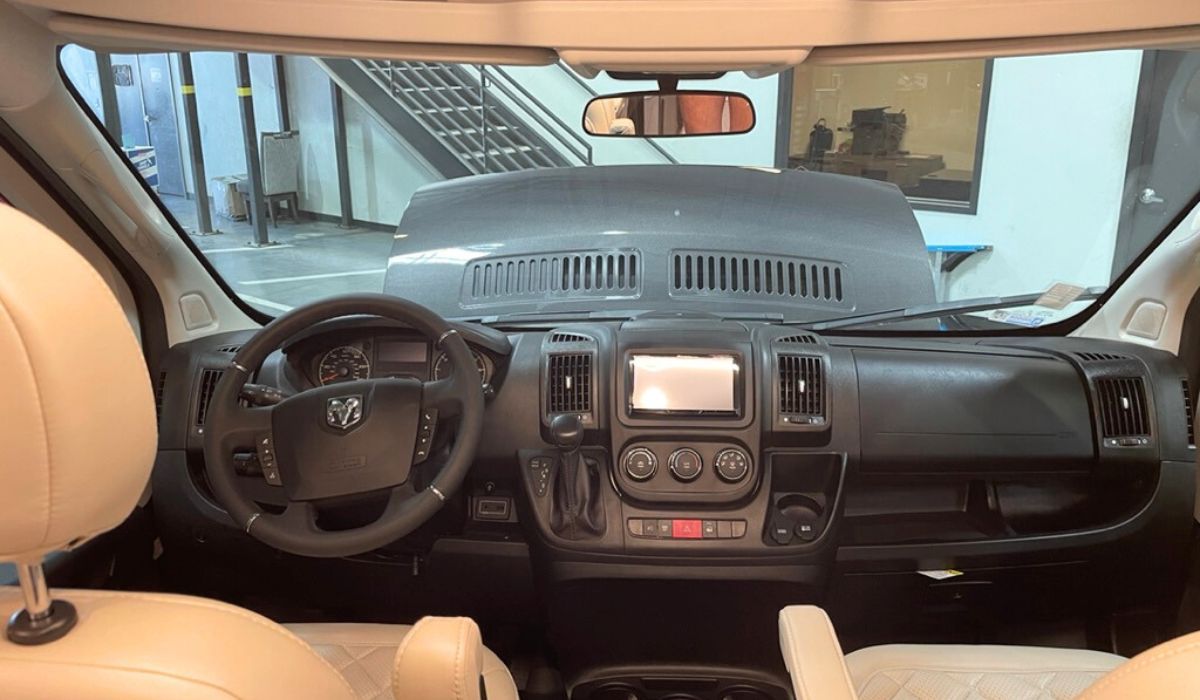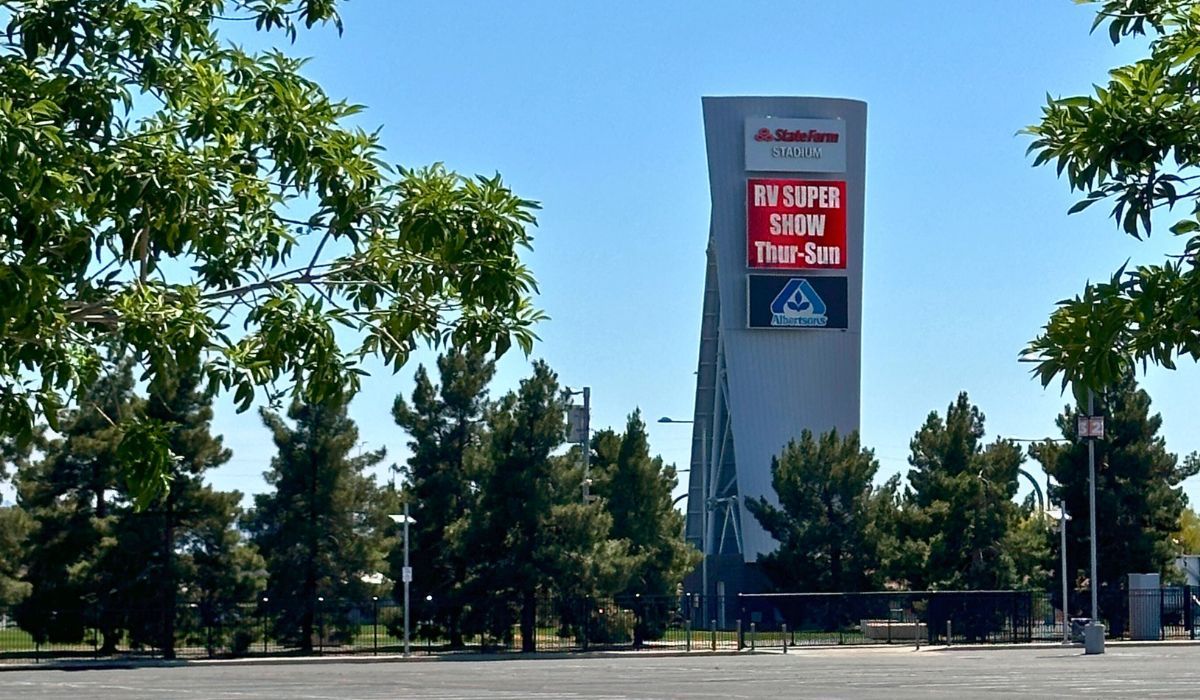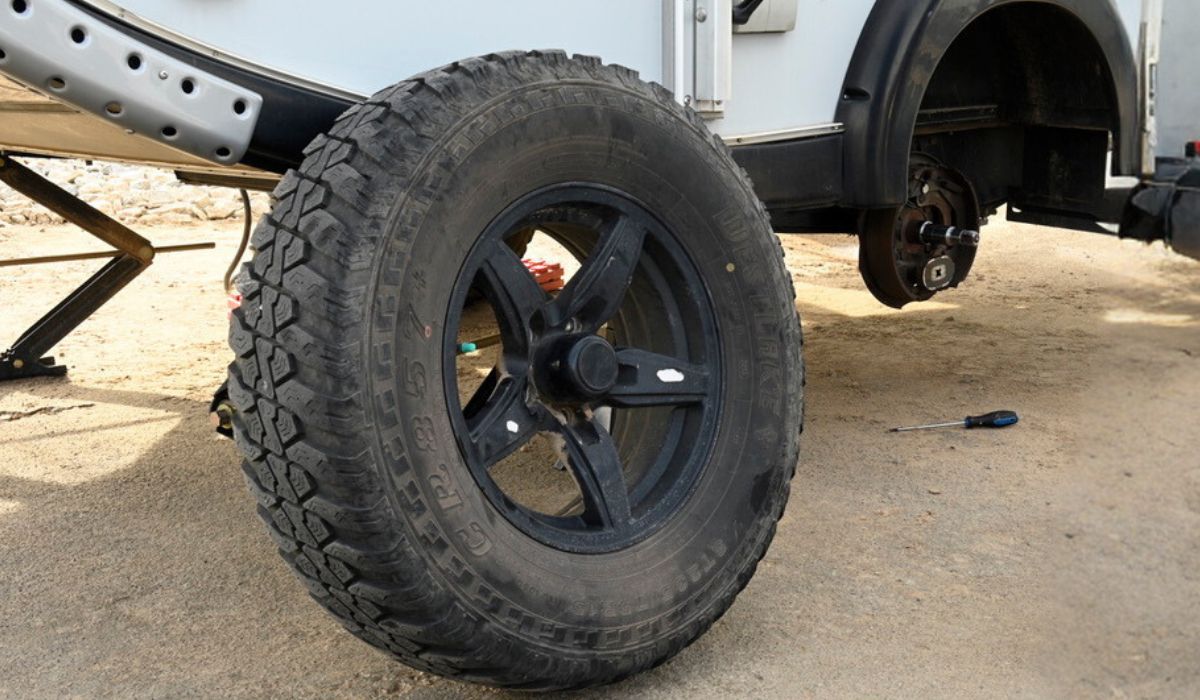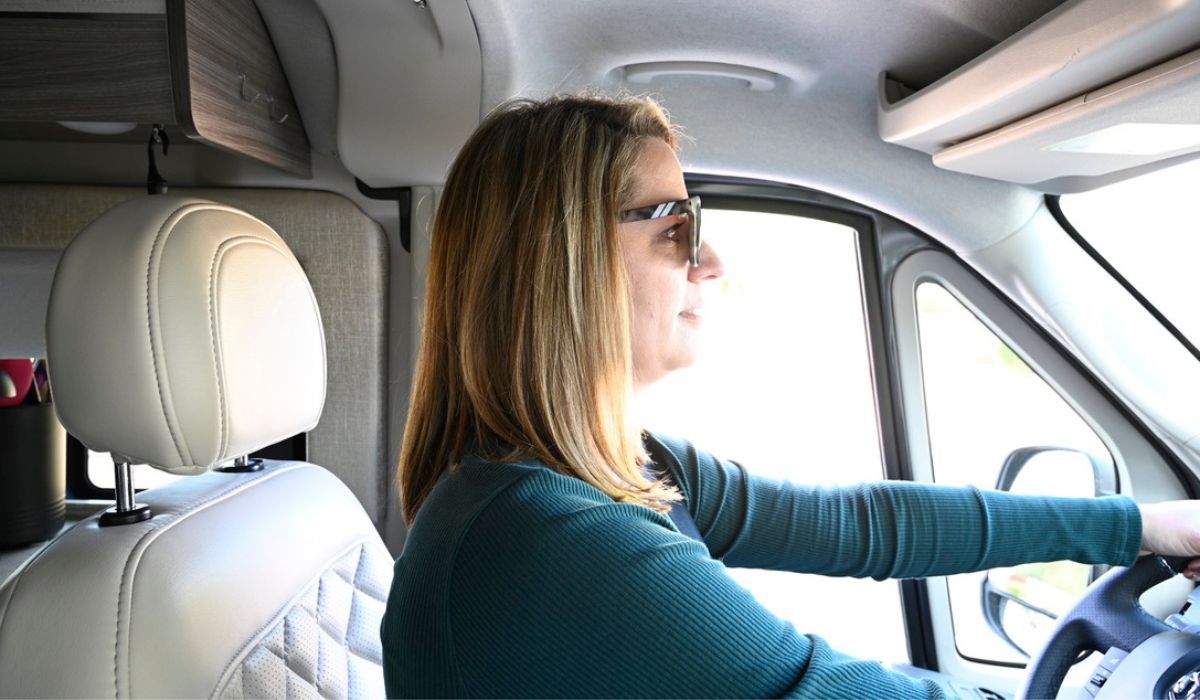
Buying a used RV can be an exciting yet daunting experience, especially if you're a first-time buyer.
This guide will help you make an informed decision and know what to look out for when purchasing a used motorhome or trailer from a dealer or a private party.
Let's get started.

Buying a used RV from a dealer vs. a private party
Dealer
If you're buying a pre-owned RV from a dealer, the process is similar to purchasing a new RV. Dealers manage everything on your behalf, from selling and financing to cleaning and prepping the RV for delivery. If you want to be hands-off and let someone else do most of the work for you, buying from a dealer is the way to go.
Private party
Buying a pre-owned RV from a private party requires handling most of the transaction yourself. This method allows for more negotiation and control over the sale process, but it also demands more effort on your part.
For more guidance on whether to buy a new or used RV, check out our expert guide on buying a new or used RV.
Preparing to buy a used RV
Show that you're ready to buy by having your financing pre-approved and bringing documentation or proof of funds if you're paying in cash. Be prepared with necessary documents like your driver's license, insurance proof, and other relevant paperwork.

Inspecting the RV
Before you inspect the RV, ask the buyer for the RV's maintenance, recall, and repair history. A well-maintained RV is usually a better investment. After verifying the records, check for the following:
- Battery condition: Look for cracks or bulging in the plastic casing, as this could be a sign of internal problems. Use a voltmeter or multimeter to test the battery, or run several systems using just the battery to test for longevity.
- Tires: Check for adequate tread, bulging, or signs of dry rot. Find the manufacturing date on all of the tires to determine their age. If there is a spare tire, check its condition, too.
Did you know that tires older than five years should be replaced, regardless of tread condition? If you live in the Southwest, you should replace your tires every three years.
- Mechanical or electrical problems: Verify that plumbing, electrical, heating, and cooling systems are operational.
- Mold: Inspect for mold inside the RV, especially in hidden areas.
- Structural damage: Look for signs of water damage, such as soft spots on the floors or weak, damaged, or rusty frames. Also, check for signs of delamination (separation of the exterior fiberglass from the underlying material).
- Cosmetic damage: Check for dents, scratches, fading, and rips.
Pro tip. Have an RVIA-certified RV inspector or a knowledgeable mechanic inspect the RV.

Test driving the RV
If it's a motorized RV, take it for a test drive. Pay attention to how it handles, brakes, alignment, and any unusual noises. For towable RVs, ensure that your vehicle is capable of safely towing the RV and that all the electrical and mechanical components are in working order.
Did you know that renting an RV is the best way to test if the floor plan, living space, and components work best for your camping style? RVezy makes it easy and fun to try out an RV before you're ready to buy!
Verifying the legal documentation
Ensure the RV has a clear title, no outstanding liens, and that its identification numbers match the documentation. Check if it has been involved in any accidents or has any unresolved legal issues.
Avoid buying an RV with a salvaged title, even if you're planning on renovating the RV. Salvaged titles often indicate that an insurance company deemed the RV a total loss and there may be structural damage to the frame or the RV was involved in another major incident.
A clear title, also known as a clean title, indicates that a vehicle is free of liens, claims, or legal disputes.
Need title information? If the previous owner financed the RV, the lender will hold the title until the loan is paid off. After the loan is paid off, the lender will send the title to the owner for safekeeping. If the title is lost or missing, contact the local motor vehicle department or equivalent agency to request a copy. When requesting a title, you must have the RV's identification number (VIN) and proof of ownership.
Registering your RV
Understanding the registration process in your state is crucial. Every state has different criteria for registration, and both the buyer and seller are responsible for submitting the necessary documents. When buying a used RV, you may need:
- A clear and transferable title (original, not a copy).
- A legal (notarized) bill of sale.
- VIN verification (camper weight must be on the VIN verification; it can't be n/a).
- Proof of emissions testing.
- Proof of insurance.
- Temporary license plates.
- Proof of paid taxes or money to pay the tax during registration.
Safety precautions when buying from a private party
When buying a used RV from a private party, take the following safety precautions:
- Meet in a safe location: Choose a public place for meeting the seller, such as a busy parking lot or a well-lit location with people nearby.
- Bring a friend: Have someone accompany you during the inspection and transaction.
- Avoid large cash transactions: Use secure payment methods and avoid paying large sums in cash.
Pro tip. Hiring an escrow service, a third-party repository, can increase your level of safety and give you peace of mind, knowing that your transaction will be secure.
- Verify identity: Check the seller’s identification and ensure it matches the name on the title and other documentation.
- Research the seller: If possible, research the seller to ensure they have a good reputation and are not involved in any scams.
Pro tip. Don’t pay for an RV unless you’ve seen it in person and have all the proper documentation.
Frequently asked questions
What are the best websites to search for a used RV?
It depends on whether you're buying an RV in the United States or Canada. The most common websites for buying an RV in both countries are Facebook Marketplace or the RVezy buy-and-sell marketplace.
Should I send a downpayment to hold the RV for a private sale?
We don't recommend paying a downpayment to hold the RV on a private sale unless you have thoroughly inspected it and verified all the legal documentation. If a downpayment is necessary, understand the terms and conditions and the refund policy before sending any money. Always use a secure payment method, avoid sending large sums in cash, and get a written receipt of payment.
Will I need temporary tags or license plates after buying a used RV?
Yes. In most states and provinces, you will need temporary tags or license plates to drive the RV until you legally complete the registration process. To get temporary tags, you'll typically need proof of purchase, insurance, and proper identification.
I'm buying a used RV from a private party. Should I ask to have an inspection before purchasing the RV?
It is always a good idea to have a third party inspect the RV for mechanical issues, water damage, and overall functionality.
Do I need a legal bill of sale when I buy a used RV?
Most states and provinces require you to have a legal (notarized) bill of sale.
Do I need to insure my RV?
Most states and provinces require you to show proof of insurance when registering your RV.
What's a VIN verification?
If you buy your RV from someone in a different state or province, you'll most likely need a VIN verification. VIN verifications require a government official to validate the VIN to check if the RV is salvaged, rebuilt, stolen, or unable to hold a valid title.
